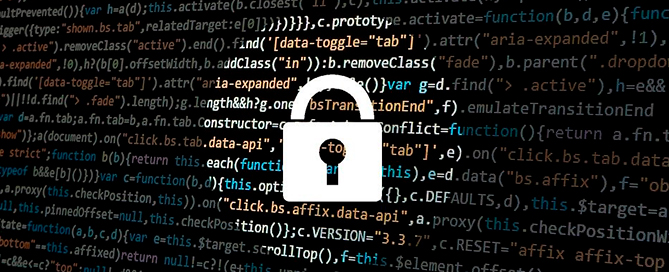In October 2022, the EU and Japan began to negotiate the inclusion of a “provision on the free flow of data” in the Economic Partnership Agreement (hereinafter, the “EPA”).
On the 28th of October 2023, during the 4th EU-Japan High-Level Economic Dialogue, ministers from the EU (High Vice-President Dombrovskis) and Japan (Foreign Minister Kamikawa and Minister of Economy, Trade and Industry Nishimura) reached a broad agreement, and on the 31st of January 2024 the parties signed the Protocol amending the EPA.
In this article we present the contents of the EU-Japan EPA, debates on the free circulation of data, and its subsequent changes.
I.- EPA between Japan and the EU
The objective of the EPA, which has been in force since 2019, is to lead the creation of free and fair rules and to promote the liberalisation of trade between Spain and Japan.
The agreement has the following key aspects:
- Access to the EU market for Japanese products.
-
- Industrial Products: Elimination of 100% of tariffs.
-
- Automotive Sector: Elimination of tariffs on 90% of automotive parts, and plans for the total elimination of tariffs on cars (passenger cars) within eight years.
-
- Agricultural, Forestry and Fishing Products: Elimination of tariffs on a large majority of the products, amongst those beef and tea. Import restrictions on Japanese wine are also eliminated and protection is granted to geographical indications for agricultural products.
- Access to the Japanese market for EU products.
This includes the immediate elimination of tariffs on chemical products, textiles and other industrial products.
- Trade, investment and e-commerce.
All sectors of trade services and investment are liberalised.
Standards are established to meet the needs of Japanese businesses operating in Europe, including telecommunications services and financial regulatory cooperation.
II.- Situation prior to the free flow of personal data.
On the free flow of data, the parties have had different attitudes.
- European Union: It has been more cautious, as reflected in the General Data Protection Regulation (GDPR), which restricts the transfer of personal data outside of the EU.
- Japan: It has been more proactive, and has advocated for “DFFT” (Data Free Flow with Trust) in international forums such as the G7 and G20.
III.- Contents of the Protocol, which modify the EPA.
This Protocol introduces provisions on cross-border transfers of information by electronic means and on the adoption and maintenance by both parties of a legal framework for the protection of personal data.
Section 1 of Article 8.81 establishes that “The Parties are committed to ensuring the cross-border transfer of information by electronic means where this activity is for the conduct of the business of a covered person.”1
Specifically, section 2 of article 8.81 establishes that:
“[…] a Party shall not adopt or maintain measures which prohibit or restrict the cross- border transfer of information set out in paragraph 1 by:
(a) requiring the use of computing facilities or network elements in the territory of the Party for information processing, including by requiring the use of computing facilities or network elements that are certified or approved in the territory of the Party;
(b) requiring the localisation of information in the territory of the Party for storage or processing;
(c) prohibiting storage or processing of information in the territory of the other Party;
(d) making the cross-border transfer of information contingent upon use of computing facilities or network elements in the territory of the Party or upon localisation requirements in the territory of the Party;
(e) prohibiting the transfer of information into the territory of the Party; or
(f) requiring the approval of the Party prior to the transfer of information to the territory of the other Party.”
Sections 3 and 4 of Article 8.81 establish exceptions to the above prohibitions.
Section 3 of Article 8.81 states that, “Nothing in this Article shall prevent a Party from adopting or maintaining measures inconsistent with paragraphs 1 and 2 to achieve a legitimate public policy objective, provided that the measure:
(a) is not applied in a manner which would constitute a means of arbitrary or unjustifiable discrimination between countries where like conditions prevail, or a disguised restriction on trade; and
(b) does not impose restrictions on transfers of information that are greater than necessary to achieve the objective.”
Section 4 of Article 8.81 establishes that the provisions of Article 8.81 do not prevent a Party from adopting or maintaining measures for the protection of personal data and privacy.
Section 1 of Article 8.82 establishes that, with regards to the protection of personal data, the Parties recognise that individuals have the right to the protection of their personal data and privacy in accordance with the legislation of each Party and that strict rules in this regard contribute to the development of credit and trade in the digital economy. Section 3 of Article 8.82 establishes that each Party shall adopt or maintain a legal framework providing for the protection of personal data related to electronic commerce.
Finally, section 4 of Article 8.82 establishes that each Party shall publish information on the protection of personal data and privacy that it provides to users of e-commerce. This includes information on (i) how individuals can seek compensation for a breach of personal data protection or privacy arising from digital commerce; and (ii) guidance and other information on companies’ compliance with the legal requirements applicable regarding personal data protection and privacy.
While the legal framework for the transfer of personal data between the EU and Japan remains unchanged, these treaty-level provisions are expected to facilitate and give way to further transactions and data transfers between Japan and the EU.
Satoshi Minami (Lawyer of Counsel)
Vilá Abogados
For more information, please contact:
24th of May 2024
1A covered person means (i) a covered enterprise; (ii) an entrepreneur of a Party; and (iii) a service supplier of a Party;



